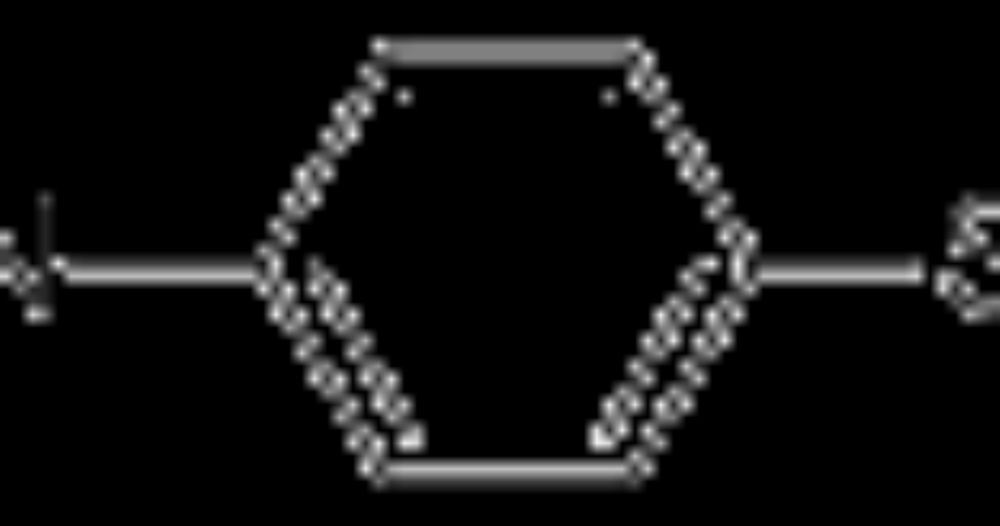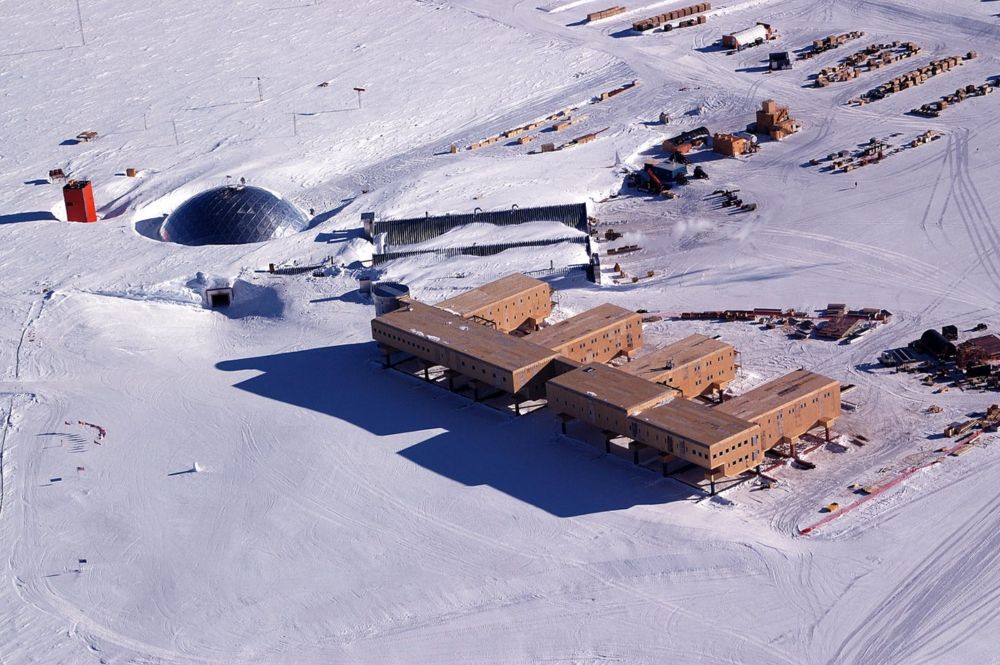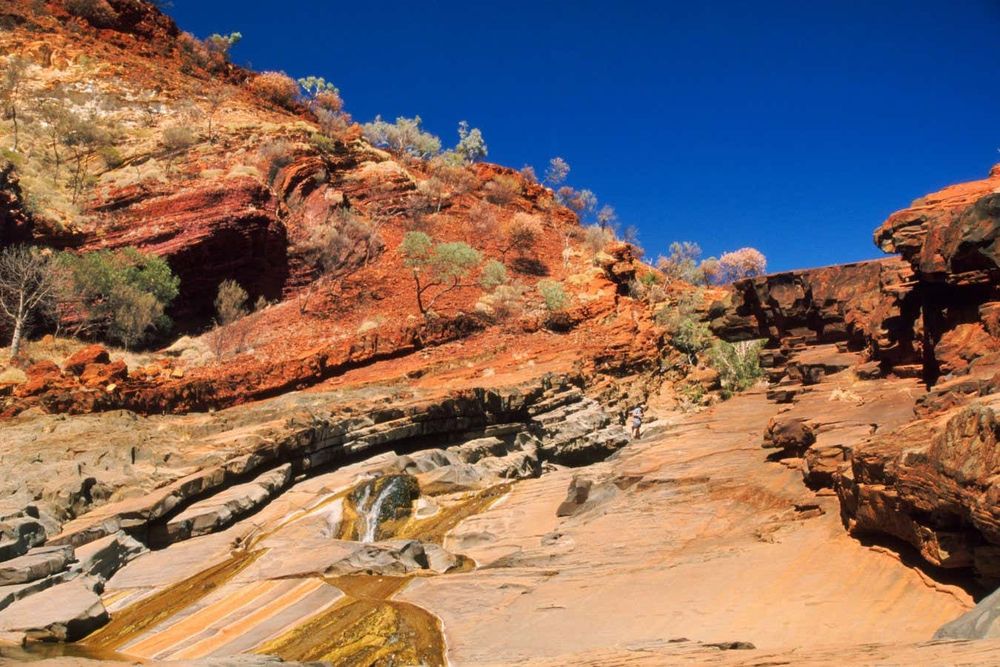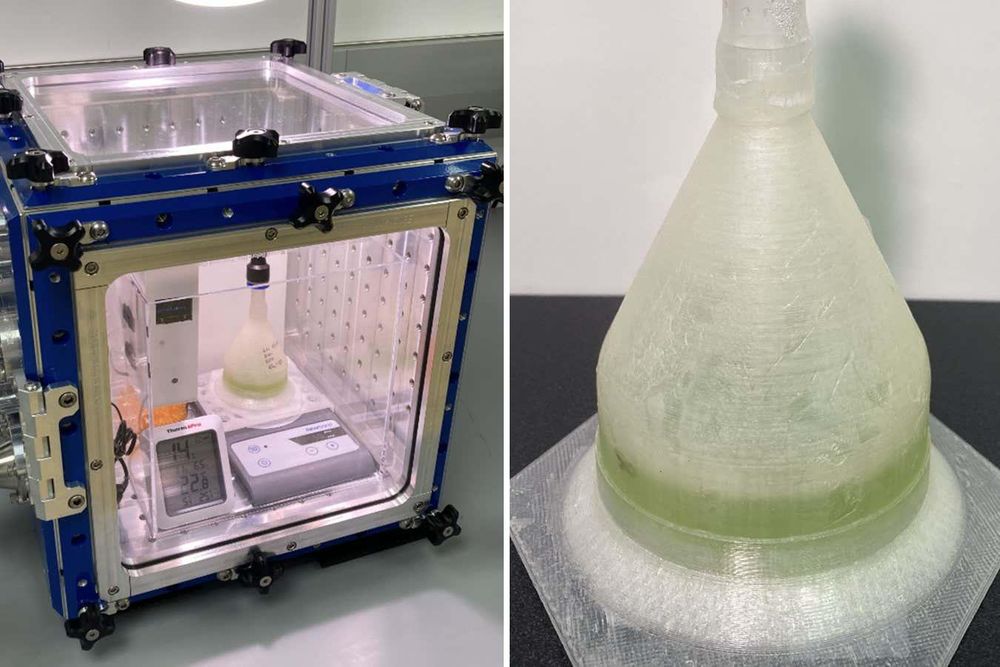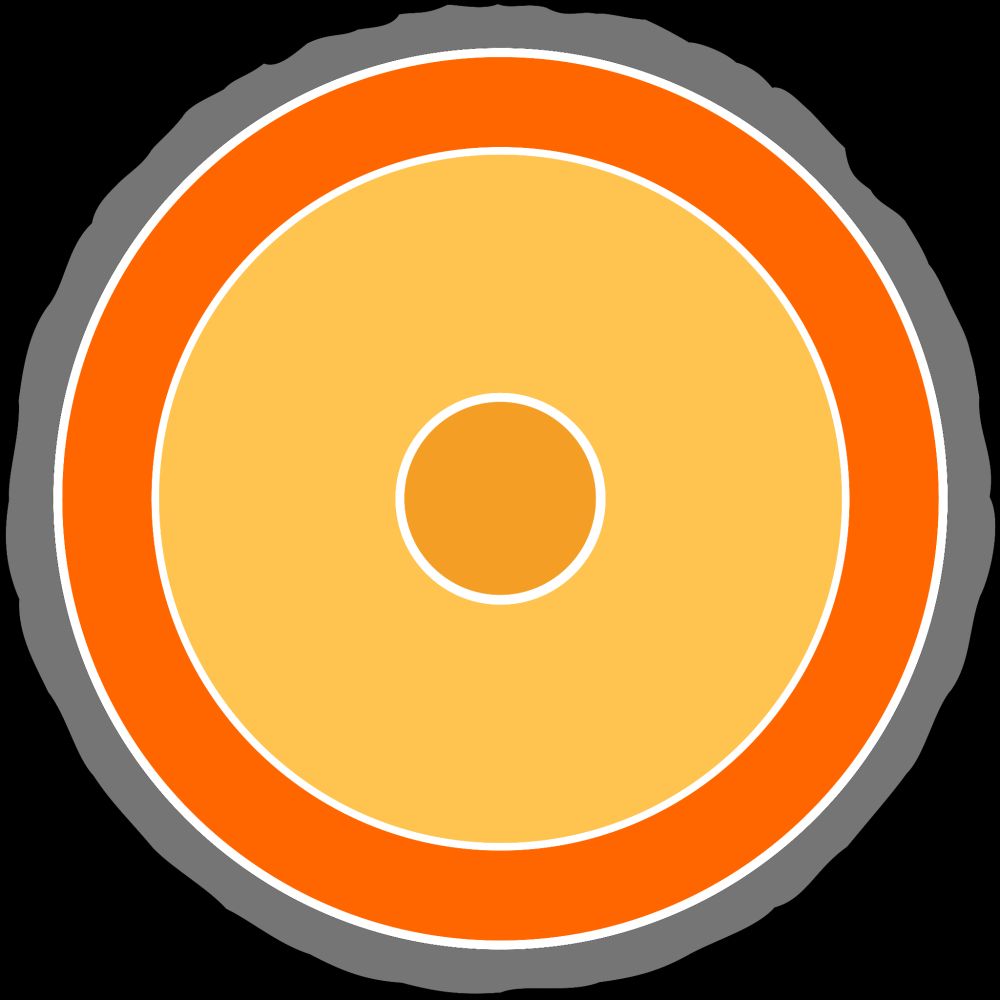You can't... repeal... a scientific finding. At that point it's just called lying about it.
12.02.2026 20:38 — 👍 6856 🔁 2497 💬 122 📌 66

U.S. Congress considers sweeping ban on Chinese collaborations
Researchers speak out against proposal that would bar funding for U.S. scientists working with Chinese partners or training Chinese students
This is lunacy. The Chinese scholars I know are among the hardest working, most selfless people I've ever encountered. They want to contribute to our intellectual endeavors, and they make our research teams better.
14.11.2025 13:04 — 👍 37 🔁 11 💬 4 📌 0

Twin spacecraft are set to take off on an unprecedented, winding journey to Mars, where they will investigate why the barren red planet began to lose its atmosphere billions of years ago.
https://cnn.it/49FLkR0
08.11.2025 14:00 — 👍 70 🔁 15 💬 9 📌 1
A personal reflection on the destructive erosion of ethics, norms and respect for law at NASA:
🧪🔭
🧵
31.10.2025 14:16 — 👍 146 🔁 65 💬 5 📌 7
My new essay on the future of life in space just appeared in Noema magazine! Kudos to Satwika Kresna for the lovely artwork.
30.10.2025 19:42 — 👍 3 🔁 2 💬 0 📌 0
Update on the atmosphere vs no atmosphere debate for TRAPPIST-1 b and c -- here's a nice and (IMO) conclusive result from Gillon and Ducrot et al.: no thick atmosphere on either planet. arxiv.org/pdf/2509.02128
03.09.2025 07:11 — 👍 30 🔁 12 💬 1 📌 2

Group photo of postdocs conducting research at a Max Planck Institute
The #MaxPlanckPostdocProgram offers a guaranteed contract of at least 3 years, targeted mentoring, and career workshops. The call for applications is open now! 🚀 Take advantage of this opportunity and browse the job vacancies. www.mpg.de/en/max-planc...
01.09.2025 08:46 — 👍 113 🔁 99 💬 2 📌 3

An image of the speaker, Laura Schaefer. She is smiling and looking into the camera. She is wearing a purple-grey zip-up jumper and sunglasses on her head. She is against a background of a large rock with some grass visible near the bottom, clearly outdoors.

An artistic conception of early Earth showing the planet's surface impacted by asteroids. Earth is shown with partial oceans and the land that is visible is covered in clear craters. Part of the Earth (bottom left) is also shown as covered by lava or a magma ocean.
Image credit: Simone Marchi, NASA. Taken from https://www.scientificamerican.com/article/early-earth-s-atmosphere-was-surprisingly-thin/
#RockyWorldsDiscussion is back from our summer break! 🔭🧪
Our next speaker is Laura Schaefer from Stanford University, who will tell us about redox gradients in planet formation simulations of terrestrial planets 🌍🌕🪨 Join us on Zoom on Thu 4 Sep @ 16:00 UTC
More: www.rockyworlds.org/event-detail...
02.09.2025 09:38 — 👍 8 🔁 4 💬 0 📌 1
yes, collision broadening is included
26.07.2025 22:41 — 👍 0 🔁 0 💬 0 📌 0
Cool, thanks for sharing!
26.07.2025 22:40 — 👍 0 🔁 0 💬 0 📌 0
If you could hear in the infrared, what would CO2 sound like? We calculated this recently for a Gen Ed course, and the result is a little eerie.
Results were generated by mapping IR frequency in inverse cm to sound frequency in Hz.
24.07.2025 17:02 — 👍 39 🔁 10 💬 5 📌 2
Thanks! Our simulations aren't quite in the same regime as Venus, but we separately used the model to recreate Venus's temperature profile and it did pretty well. We found it was right on the edge of convective instability in Venus's lower atmosphere, interestingly.
18.06.2025 12:41 — 👍 1 🔁 0 💬 1 📌 0
I mean yeah pretty worried, of course : ). The problem with the continuum in the visible is that we need really long path lengths and/or sensitive measurements, which means $$$ for experiments. Maybe ab initio can help, although H2O is a tough molecule to simulate.
16.06.2025 17:52 — 👍 1 🔁 0 💬 1 📌 0
Characterizing the Radiative–Convective Structure of Dense Rocky Planet Atmospheres - IOPscienceSearch
Characterizing the Radiative–Convective Structure of Dense Rocky Planet Atmospheres, Cmiel, Jessica, Wordsworth, Robin, Seeley, Jacob T.
New work led by Jess Cmiel finds that planets with steam atmospheres may be cooler — much cooler — at the surface than we previously thought.
iopscience.iop.org/article/10.3...
arxiv.org/abs/2505.00775
This supports and extends conclusions published last year by Selsis et al. in Nature. 🔭 🧪
16.06.2025 14:54 — 👍 14 🔁 1 💬 3 📌 0
The resurfacing is very episodic but it’d still be pretty bad in a period of peak activity. Then in the good times you’d have slimy microbial mats as far as the eye could see. No skyr or harðfiskur, unfortunately.
02.06.2025 23:00 — 👍 0 🔁 0 💬 1 📌 0
It's a fascinating question. Global temperature matters a lot, but so do other factors like total area and latitude (equatorial LIPs weather fastest due to higher rainfall rates). If e.g. Brazil was turned into a LIP today, that could well trigger a Snowball.
02.06.2025 15:24 — 👍 3 🔁 0 💬 0 📌 0
These ‘large igneous provinces’ have formed a few times in Earth history and are terrifying — imagine a huge chunk of the surface turning into Mordor in a geologic blink of the eye
02.06.2025 14:53 — 👍 5 🔁 0 💬 1 📌 0
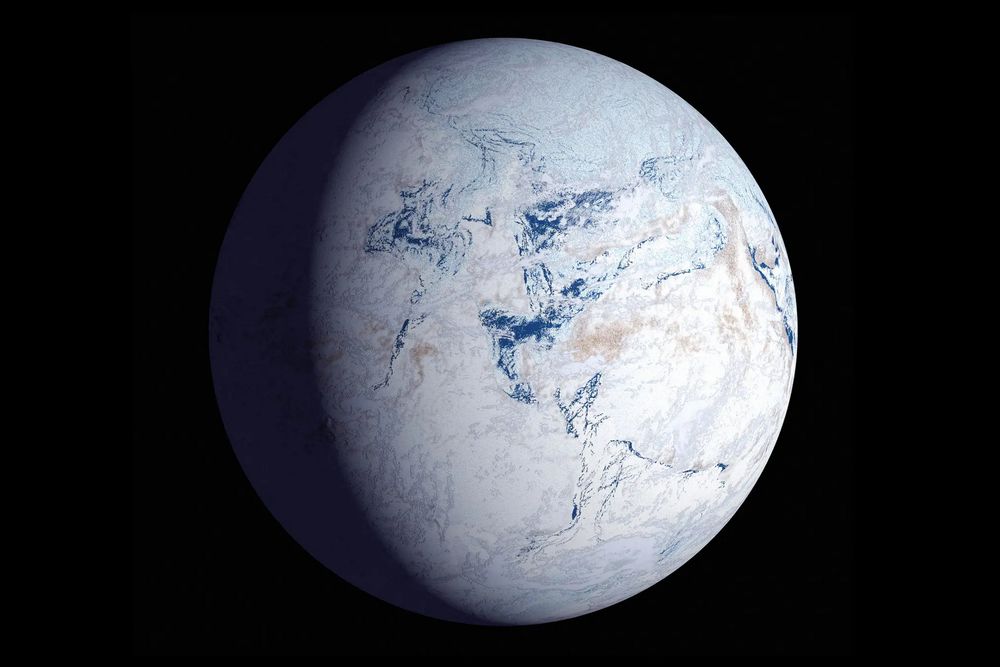
What does it take to turn Earth into a Snowball? Formation of a volcanic plateau about the size of India at the equator, according to our new study led by Charlotte Minsky:
agupubs.onlinelibrary.wiley.com/doi/epdf/10....
🔭 🧪
02.06.2025 14:53 — 👍 58 🔁 8 💬 5 📌 0
Interesting paper by Yang et al. on arxiv today arguing clouds might _help_ us observe O2/O3 on exoplanets in some cases:
arxiv.org/pdf/2505.07760
13.05.2025 13:55 — 👍 9 🔁 3 💬 0 📌 0

Proposed NASA cuts in context, courtesy of the Planetary Society #astronomy #science
02.05.2025 16:47 — 👍 100 🔁 47 💬 2 📌 3
Planetary scientist and aerospace engineer. He/him. https://www.alejandrosoto.net
My writing represents me alone and not my employer nor anyone else.
Fighting every day to deliver a city that working New Yorkers can actually afford. Mayor of New York City.
Orbit simulations of planets, comets, asteroids and other interesting stuff. Amateur astronomer. BA: Physics & Astronomy, SFSU.
Associate Professor in the School of Earth and Space Exploration at Arizona State University. Barnes & Noble Premium Member.
PhD, occasional astronomer, talking head, science geek, cynic. Senior Editor at @Science.org, responsible for research papers in astronomy and planetary science. Views own, duh. Bio: https://www.science.org/content/author/keith-t-smith
Original news, reviews, analysis of tech trends, and expert advice on the most fundamental aspects of tech.
Planetary Science PhD Student @Institute of Astronomy, Cambridge
Like🚴🏻♀️ ☕️🌏🚞📖🇦🇶 🎨
planetary atmospheric scientist studying Mars, Venus, + @ CU Boulder. From PDX 💚 cats, plants, dnd, climate, outdoor stuff, Star Trek 🖖, bothering geologists about rocks, NPs geek
Longform journalism exploring fresh ideas. Pitch us: edit@noemamag.com
Miller Fellow @UC Berkeley | Planetary Science | Astrophysics
Professor, Planetary Sciences, Astrobiology, Origin of Life
https://faculty.washington.edu/dcatling/people.html
CSH Postdoctoral Fellow at the University of Bern, studying exoplanet atmospheres 🔭🌐
Astronomy PhD student at the Institute of Astronomy, University of Cambridge
Event Horizon with John Michael Godier is a Science focused narrative driven show featuring special guests. http://youtube.com/@EventHorizonShow
This is the BlueSky feed of Raymond T. Pierrehumbert, Professor of Planetary Physics at the University of Oxford. Tune in for news about Principles of Planetary Climate, and diverse science and political commentary. (Also folk music news)
Lecturer in Astrophysics at the University of Bristol. I use numerical models to study planetary climates. Views are my own. He/him.
https://dennissergeev.github.io
ORCiD: 0000-0001-8832-5288
Sagan Fellow at the Center for Astrophysics | Harvard & Smithsonian. Working on the characterization of hot transiting exoplanets.
U.S. Senator, Massachusetts. She/her/hers. Official Senate account.
https://substack.com/@senatorwarren








